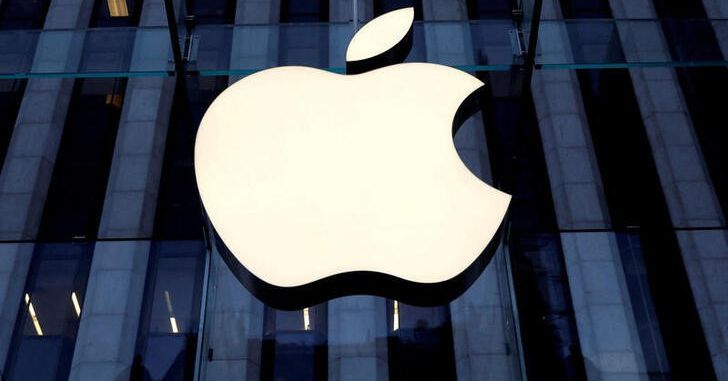If the only things the movie and Dan Ackerman’s book have in common are the historical facts, then I don’t understand how Ackerman’s book is being infringed on. Is there more to it than that? I haven’t read Ackerman’s book and I’ve not seen the Apple movie. Are there fictional elements or speculations in Ackerman’s book that were translated to the Apple movie?
That may be true, but I think he might have a case…
The lawsuit said that Ackerman sent a pre-publication copy of the book to the Tetris Company earlier that year. He said the company refused to license its intellectual property for projects related to his book, dissuading producers who were interested in adapting it, and sent him a “strongly worded cease and desist letter.”
So he made the book, presented it to Tetris, they rejected the idea, threatened him to sue if he did his own thing, rejected other producers, then I guess partnered with Apple and made it as if it was their idea.
Are there fictional elements or speculations in Ackerman’s book that were translated to the Apple movie?
I think so, I think it’s more a thematic kind of thing, not the history per se. But I haven’t watched the movie or read the book, so this is just my point if view from what the article says.
No idea if it works like that or if he would have a case as I’m not a lawyer, or writer, or producer, so take what I said with a pinch of salt.
IANAL, so I don’t know what are the actual legal merits involved in either having a case or not… but if someone came to me about some facts about me that they published, and they wanted me to ‘buy the rights’ to those historic facts about me, I’d feel totally justified in telling them to piss off. And if I later decided to create any form of written or video story about myself, the peddler who’d come to me earlier would already be on my blacklist of potential partners to work with.
Only the fictional similarities matter, if any.
He has no future rights to be involved in a movie about a major franchise just because he once proposed a movie of same.
So since we know of no fictional similarities as yet, this case remains entirely to be made in court.
No surprise here I hope he gets more than the 6%. Get fucking 100%. Stole his work and told him to fuck off.
They didn’t steal anything. He wrote a non-fiction account of a historical event. The Apple TV+ movie is a somewhat fictionalized account of a historical event with the direct support of the primary people actually involved. They don’t owe him a penny. At most his contribution is an inspiration that, hey, this could make a great movie, which isn’t worth any money.
deleted by creator
I trust the little guy.
The editor of Gizmodo knows very well that “Apple” gets clicks and in this case he’s trying to generate free press for his obscure book. His suit doesn’t quite meet the standard of “frivolous,” so I don’t think anybody is getting sanctioned for it, but it’s certainly not filed in good faith. It’s not even an issue of “trust.” What he claims is inherently ridiculous. You can’t copyright historical events, and presenting it as a Cold War thriller isn’t some radical creative choice of “tone.” The dry facts are pretty thrilling on their own, and the extra-thrilling parts (car chase) are inventions of the film.
How many other people are they doing this to?
Not stealing from? Literally billions of other people are being treated the same way by Apple every day.
Sad the voice of reason is getting downvoted because people here have this peculiar belief that Apple is 100% wrong just by virtue of being a giant company.
Gizmodo has a sorted history with Apple and have demonstrated time and time again they are trash media that lie, steal, cheat to get clicks.
Sordid
Took autocorrect for granite
This is the best summary I could come up with:
Aug 8 (Reuters) - Dan Ackerman, editor in chief of the tech-news website Gizmodo, filed a lawsuit in Manhattan federal court on Monday accusing Apple (AAPL.O), the Tetris Company and others of adapting his book about the landmark video game “Tetris” into a feature film without his permission.
The book describes the Soviet history of the popular puzzle game and the fight for its global licensing rights as a “Cold War thriller with a political intrigue angle,” according to Ackerman’s lawsuit.
He said the company refused to license its intellectual property for projects related to his book, dissuading producers who were interested in adapting it, and sent him a “strongly worded cease and desist letter.”
According to the complaint, the company’s CEO Maya Rogers and screenwriter Noah Pink began copying Ackerman’s book for the “Tetris” screenplay starting in 2017.
Ackerman said the film “liberally borrowed numerous specific sections and events of the book” and was “similar in almost all material respects” to it.
Ackerman accused Apple and the Tetris Company of copyright infringement, unfair competition, and illegally interfering with his business relations.
I’m a bot and I’m open source!
The case is Ackerman v. Pink, U.S. District Court for the Southern District of New York, No. 1:23-cv-06952.
Good luck Ackerman, you’re gonna need it to go up against Apple in a New York court.
Gizmodo? The publication that got uninvited to all Apple events due to their coverage on the leaked iPhone 4? I’m certain there are new owners of Gizmodo since then, but the irony here is pretty interesting…
due to their coverage on the leaked iPhone 4?
They literally committed a felony, bought what at that point was a stolen prototype, damaged Apple’s property, and then tried to extort Apple in exchange for returning what was, again, Apple’s own property.
Having seen Tetris, this is pretty meta. Befitting of a movie about the theft of intellectual property rights to involve the theft of intellectual property.
Apple and ripping shit off. Old news
it’s history. it happened. Ackerman didn’t invent the story, unless he’s claiming that’s the case…?
If I write a book about The Prohibition, is Ken Burns going to sue me because he once made a docu-series about it?
No but if you wrote a musical about prohibition, submitted it to apple, but apple rejects it, discourages other producers from picking it up and then apple made a musical about the prohibition, you may have a case. I think the issue is the thematic stylistic interpretation was copied over either intentionally or unintentionally, and the court needs to decide if it’s worth a suit
Style isn’t copyrightable, there has to be more substantive commonalities than just that.
It’ll be up to the courts to decide if there is, of course. I notice that a review of the book quoted Ackerman from it:
In cases where the historical record is unclear, or when my interviews conflicted with previously published accounts, I’ve attempted to recount the most likely version of what happened, based on research and my own conversations with many of the primary participants. A certain amount of historical interpolation was required to offer a clear narrative understanding, including into the thought processes and motivations of those involved.
Which suggests that the book is partly fictionalized, so it’s possible that there may be identifiable elements lifted from it. We’ll see.
I agree that, if these allegations turn out to be true, it’s pretty damned scummy. but is it copyright infringement to tell a story from a certain perspective?
I mean, I’ve seen the film, and I’ve skimmed through the book. they both focus on the most interesting parts of the story as any dramatic retelling would, and the story itself lends itself to a certain interpretation, regardless of who writes about it. Personally, I don’t see the story bing told (at least from the protagonist’s perspective) any other way and there are certainly many differences between them that are immediately evident. But it would seem to me that anyone telling a story about those events would end up with a similar story simply because they’re based on real people and historical events.
but you’re right that there’s probably enough “there there” to warrant adjudication and would depend on the interpretations of copyright law by the judge and jury, if it were to go to trial.
edit: btw, your use of a musical isn’t a great analogy since musicals have way more original material (the music) tat can be used to prove or dispute a copyright infringement claim than simply interpretation of an historical event.









